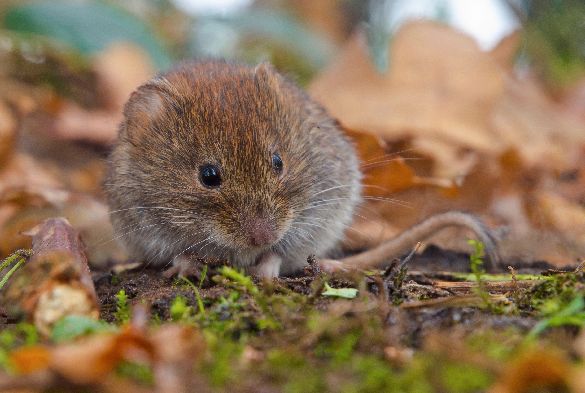
The different ways that animals and humans respond to infectious disease could be explained by analysis of the biology and environment of the genetically diverse, wild vole, say researchers at the University of Liverpool.
Wild voles are exposed to multiple pathogens, varied weather conditions and the challenges of finding food and a mate. They are vulnerable to tuberculosis, but not all animals become ill from the infection.
Using analysis from the vole’s genome sequence and understanding of its natural environment, scientists will cast new light on how genetics and environment influence health and fitness.
They aim to use the research to identify the types of individuals and the environmental circumstances that make humans and animals more or less vulnerable to infection and disease.
Conservation
The work, funded by a £3.2 million award from the Natural Environment Research Council (NERC), may help to conserve natural populations threatened with disease, as well as mitigate against zoonotic infections and increase understanding of human immunity.
Lead investigator, Professor Steve Paterson, from the University’s Institute of Integrative Biology, explains: “A recent example of varied immune response in the animal world is the pox virus in squirrels. Red squirrels in the UK were almost wiped out by the virus, but grey squirrels were immune. Another example is TB in badgers; some animals can carry and transmit TB without showing any symptoms, whereas others become seriously ill.
“Our challenge is that we can’t understand why this happens by studying animals in the laboratory; we have to see them in their natural environment.
“It is more than just understanding responses to infection in the context of biology; it is also about how environmental stresses, such as food, weather and reproduction, impacts on an animal’s strategy for coping with infection.
“This puzzle also applies to humans, especially in the developing world where infections are common.”
Coping strategy
Strategies for coping with infection include resistance, where the immune system’s first response is to clear the infection, although this can cause damage to tissue in the body. Other responses could be to reduce the damage caused by the infection – referred to as tolerance – particularly if an individual is constantly re-acquiring infection from the environment.
Individuals within a natural population, however, will differ in their genetics, level of nutrition, prior history of infection, and in the composition of their gut bacteria. These variables may affect the type or strength of immune response that they make.
The team will connect these external and genetic factors to understand the variety of responses to infection, how successful vaccination could be, and why some individuals are more likely to develop an autoimmune disease such as asthma.
The research is in collaboration with the University of Nottingham, Aberystwyth University, and the Forestry Commission England.
